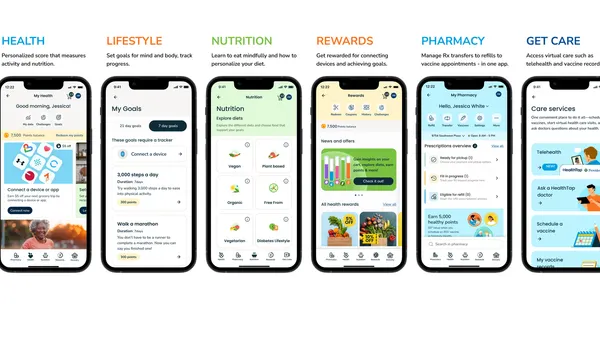As 2025 kicks off, several states have taken steps to eliminate or reduce their grocery taxes, continuing bipartisan efforts by lawmakers in recent months to make food more affordable to consumers.
Kansas recently completed the final step of a multi-year phasedown of its grocery tax. The state sales tax on food and food ingredients dropped from 6.5% to 4% at the start of 2023, then fell to 2% at the beginning of 2024 ahead of its elimination on Jan. 1.
Arkansas Gov. Sarah Huckabee Sanders said she plans to end the state’s grocery tax as part of goals outlined in her state of the state address on Tuesday. Arkansas’ 0.125% grocery tax is the lowest among the states that tax groceries, according to Kiplinger.
Tennessee lawmakers are considering a similar proposal. A bill filed in December that would eliminate the state’s 4% grocery tax has received the backing of the Tennessee House Republicans — marking a switch by the party’s leaders, who had previously opted for grocery sales tax holidays instead of supporting a permanent end or cuts to the tax, The Tennessean reported. When factoring in local sales taxes, Tennesseans can pay as much as 6.75% in sales tax on food items like bread and milk, the paper noted.
In Mississippi, a state grocery tax reduction from 7% to 2.5% is part of the $1.1 billion tax cut package the state’s House of Representatives is set to take up this week, The Clarion-Ledger reported Monday. The legislation would adjust the tax structure on other items to offset costs that stem from lowering the grocery tax, the newspaper noted.
Meanwhile, Alabama lowered its grocery tax from 4% to 3% in 2023 but then declined to drop it to 2% at the start of September 2024. However, the state could again reduce the tax later in 2025 “if there is sufficient growth in the state Education Trust Fund,” according to the Alabama Department of Revenue. The grocery tax cut appeared to impact the Education Trust Fund budget less than initially projected, Alabama Reflector reported last summer.
These announcements follow efforts in 2024 to eliminate or reduce grocery taxes.
Last year, Illinois Gov. JB Pritzker signed legislation that will repeal the state’s 1% grocery tax on Jan. 1, 2026, and Oklahoma Gov. Kevin Stitt signed legislation doing away with the state’s 4.5% grocery tax, which took effect in August. Oklahoma’s state tax still applies to certain food items, such as deli sandwiches, hot soups, pre-heated convenience store food and alcoholic beverages.
Not all efforts to eliminate grocery taxes were successful last year, according to local news reports. Proposed legislation to end the grocery tax in Missouri seemingly stalled; a judge in Utah voided a proposed ballot amendment ahead of the November election that would have given Utahns the chance to vote on eliminating the state sales tax on food; and South Dakota voters rejected a ballot initiative that would have removed the state’s tax on grocery items.
Grocery taxes can disproportionately impact lower-income shoppers, influence where people buy food and potentially pose additional expenses to retailers due to data collection, recordkeeping and transmission of funds involved, FMI – The Food Industry Association told Grocery Dive in 2023.
Proponents have pointed to the financial benefits governments can reap from grocery taxes. Alabama, for example, used its then-4% grocery tax to generate more than $600 million annually for the state’s Education Trust Fund, according to the New York City Food Policy Center.
Along with statewide grocery taxes, counties and cities can also impose their own local taxes. Some jurisdictions and states, such as Hawai’i and Idaho, have turned to measures like grocery tax credits to help make food shopping more affordable for eligible consumers.
Last year, some Virginia officials floated the idea of a 1% “meals tax” on prepared foods and beverages sold at grocery and convenience stores, which early estimates projected would bring in approximately $33 million in revenue, according to Kiplinger.












